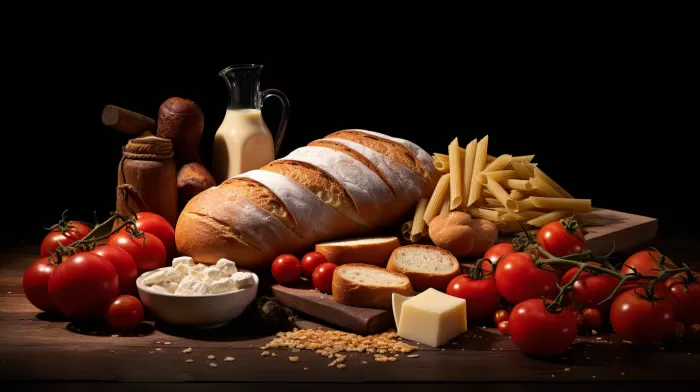Imagine consuming a food ingredient that millions of people cannot digest, that’s associated with mental health disorders, can cause infertility, and increases the risk of death by a staggering 400% in some individuals. Shocking, right? Yet, this ingredient called gluten is found in the majority of processed foods available in supermarkets.
Attempting to lead a gluten-free lifestyle can be incredibly challenging. Common foods like bread, pizza, crackers, cookies, candy, soups, and pasta are loaded with gluten. This group of indigestible proteins is primarily found in wheat, barley, and rye.
What makes going gluten-free even more difficult is that gluten hides in various other food items that you wouldn’t suspect, contaminating almost every processed food.
The Bitter Truth about Gluten
Around 3 million people in the United States suffer from celiac disease, an autoimmune reaction to gluten that leads to the deterioration of the digestive tract. Additionally, another 20 million are estimated to be gluten-sensitive, dealing with a range of health issues even in the absence of intestinal damage. Worryingly, around 95% of these people are unaware that their health problems are linked to gluten consumption.
Gluten-related symptoms can manifest as unexplained headaches, stomach aches, memory loss, muscle coordination difficulties, vitiligo (loss of skin pigment in patches), irritable bowel syndrome, and various other issues. Most people never suspect gluten to be the primary cause of their suffering.
Hidden Sources of Gluten
If you’re striving to embrace a gluten-free diet, you must be cautious of the commonly overlooked sources of gluten, such as:
- Gluten in restaurant food: Cross-contamination when dining out is a very real possibility. Restaurant staff may not be careful enough when handling gluten-free food, for instance, using the same cutting board for gluten-free and gluten-containing ingredients.
-
Gluten in your own kitchen: Sharing your kitchen with people not on a gluten-free diet can be risky; crumbs containing gluten are left behind from foods like bread and pasta. Make sure to clean surfaces and utensils thoroughly to minimize gluten contaminants.
-
Gluten in medications: It’s not just food you should be concerned about. Prescription and over-the-counter medications can contain gluten. Always check the label and consult with your pharmacist or the pharmaceutical manufacturer to make sure your medicines are gluten-free.
-
Gluten in dietary supplements: Similar to medications, vitamin, mineral, and herbal supplements can also contain gluten. Check the labels diligently.
-
Gluten in beer: Since barley is rich in gluten, most beers also contain this protein. If you drink beer, always opt for a certified gluten-free variety.
-
Hand hygiene: Whenever you handle foods containing gluten, be sure to wash your hands thoroughly afterward to avoid cross-contaminating your own food.
-
Changing food ingredients: Food manufacturers might change ingredients in processed foods at times. A food you’ve eaten safely before may now contain gluten.
-
Foods from bulk containers: Be cautious with foods purchased from bulk containers at supermarkets or health food stores, as those marked “gluten-free” may have been contaminated if the bin previously contained wheat flour and was not cleaned properly.
Stay Alert and Gluten-Free
Adhering to a gluten-free diet requires constant vigilance. As research indicates, many people with celiac disease or those who are gluten-sensitive may have an autoimmune reaction if they consume as little as one-sixth of a slice of bread. In some cases, individuals are so sensitive that only a few breadcrumbs can make them sick. In the quest to maintain your health, being meticulous about avoiding gluten is the key.



